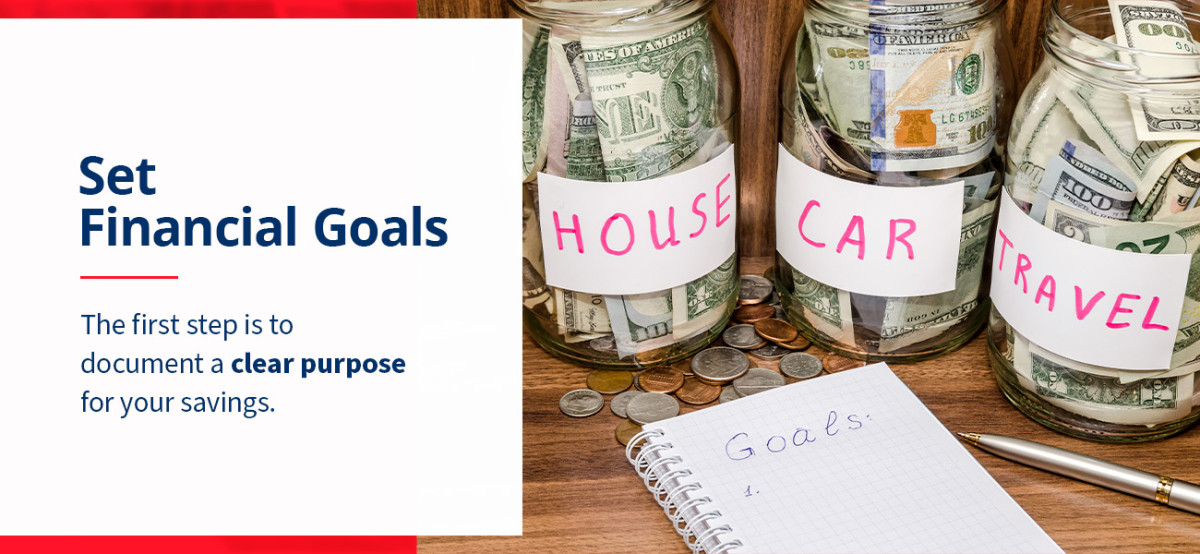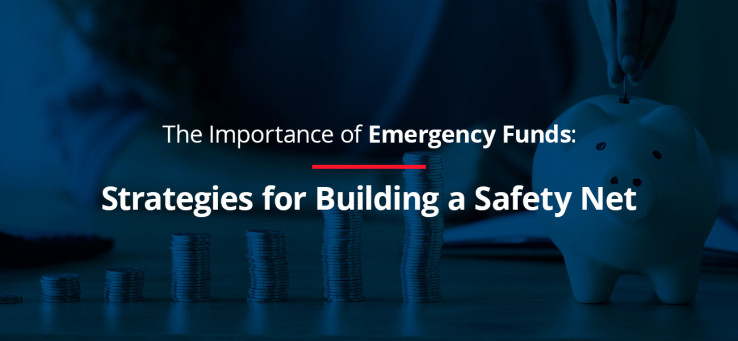Life can be unpredictable, and you never know when you may need to finance an emergency, like a critical roof repair or medical expense. The consequences of being unprepared can range from high-interest emergency loans to waiting for the next paycheck to cover the costs. This is what emergency funds are meant for.
What Is an Emergency Fund?
An emergency fund is a pool of money set aside to cover unexpected expenses or emergencies. The funds allow you to cover these often expensive emergencies without relying on loans, credit cards or other high-interest sources of quick money. The goal of these funds is to give you peace of mind and a sense of financial stability. Emergency funds should not be used to pay for planned expenses. Building a financial safety net is an important part of your financial planning.
Why Emergency Funds Matter
An emergency fund protects against uncertainties that can disrupt your financial stability. These expenses and emergencies demand immediate attention, giving you no time or space for adjustments. So, what are unexpected expenses in this context? Anything relatively affordable that you can cover without planning doesn't require a building a safety net. Remember how you may need to repair your roof? That's an expense that should be covered by your emergency funds.
Here are some of the major reasons you should start thinking about building a safety net:
- Job loss: An emergency fund can give you a temporary buffer if you lose your job or your source of income is disrupted. As you search for a new job or plan your next course of action to generate income, you can use the fund to cover your living expenses. You won't have the pressure of accepting just any job that comes your way and will feel less overwhelmed during your search.
- Medical bills: An unexpected illness, a major accident, a fall that breaks your legs — all these are situations no one sees coming. Yet, they happen. Your medical and dental insurance might help, but you may still have to pay some medical bills and copays out of pocket. And if your employer covers your health insurance, losing your job is even more inconvenient — you lose a source of income and your medical insurance as well. With the average cost of a three-day hospital stay costing around $30,000, you need to start saving money for your emergency fund as soon as possible.
- Avoid debt: Many people turn to high-interest loans or credit cards when faced with emergencies. This debt cycle may trap you and hinder your future financial goals. An emergency fund ensures you never find yourself in this situation.
- Build for the future: You can build long-term financial goals with your emergency funds covering unexpected expenses. You don't have to use the money you're saving to buy a home to pay for urgent car repairs — your emergency funds should cover the car repairs. You can continue building your future with minimal disruptions when you have an emergency fund.
- Peace of mind: Having a safety net to cover unexpected emergencies gives you peace of mind. The emergency fund helps alleviate anxiety and stress associated with sudden unplanned expenses.
How to Build a Safety Net
It takes discipline and a sense of purpose to start and consistently build your emergency fund. There are lots of temptations around that can sway you into diverting your money into temporary pleasure. Here are some steps to follow:
Set Financial Goals

The first step is to document a clear purpose for your savings. This includes specifying the amount you wish to have in your emergency fund. The common recommendation is to have at least three to six months of living expenses. The ideal amount may vary depending on your goals and income. Determine a specific monthly amount of savings you'll channel to the emergency fund, and plan to review your emergency funds saving goals regularly.
Create a Budget
Before considering saving, you should know how much you spend by creating a budget. Determine your monthly expenses, including your regular living expenses like rent or mortgage, food, utilities and transportation. Compare your total expenses with your income to establish how much money you can save each month.
Your expenses may exceed your income, leaving no extra money to be saved. You may have to cut down on unnecessary expenses or change your spending habits to save money for the fund. The best approach is to treat your monthly emergency savings as a priority, similarly to how you handle your monthly rent or mortgage payment. This way, when your total expenses are less than your income, you have more money that you can use for investments or financing personal projects.
Look for Additional Income
You may change your spending habits and cut down on unnecessary expenses, but if you still find out that your expenses exceed your income, you'll have to look for additional sources of income. Consider using your skills, interests and free time to make more money to channel into your emergency fund.
Choose the Right Platform
After learning how to build a safety net and witnessing the accumulation of funds over time, you may be tempted to withdraw the money and use it on unnecessary expenses. This is why you should consider an account or financial service that does not make it easy for you to withdraw the money at will. Some of the best options to consider include money market accounts, fixed deposit accounts and short-term investments like certificates of deposit.
Automate Your Savings
As of 2023, only 44% of U.S. adults could pay for emergency expenses of $1,000 or more from their savings. This is partly due to the fact that many people do not have the systems and protocols in place to save. You can make things easy by automating transfers from your checking account to your emergency fund account — remember, building and maintaining the fund consistently takes discipline. It's much easier to make saving a habit if you automate the transfers.

